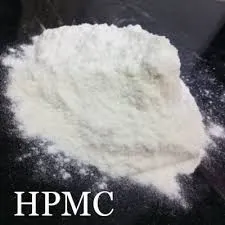
Aug . 22, 2024 05:46 Back to list
Hydroxypropyl Methyl Cellulose Suppliers and Manufacturers for Various Applications
The Role of Hydroxypropyl Methyl Cellulose in Modern Industries
Hydroxypropyl methyl cellulose (HPMC) is a versatile and widely used polymer derived from cellulose, a natural polymer found in plant cell walls. This semi-synthetic compound has gained significant attention due to its unique properties and applications in various industries, including pharmaceuticals, food, construction, and personal care. This article explores the key attributes of HPMC and highlights the prominent manufacturers behind its production.
What is Hydroxypropyl Methyl Cellulose?
HPMC is produced by chemically modifying cellulose through the introduction of hydroxypropyl and methyl groups. This modification enhances the solubility and thermal stability of cellulose, making HPMC an effective thickening agent, emulsifier, and film-forming agent. Its ability to dissolve in cold water and form a gel at elevated temperatures has made it a critical component in numerous applications.
Applications in Various Industries
1. Pharmaceutical Industry One of the significant applications of HPMC is in drug formulation. It is commonly used as a binder in tablets, ensuring uniformity and stability in the dosage form. Additionally, it serves as a controlled-release agent, allowing for a gradual release of active pharmaceutical ingredients (APIs) over time. HPMC’s compatibility with a wide range of excipients enhances the formulation's overall effectiveness.
2. Food Industry HPMC is widely employed as a food additive, offering various functional benefits. It acts as a thickener and stabilizer in sauces, dressings, and soups. Its ability to provide texture and improve mouthfeel makes it a popular choice among food manufacturers. Moreover, HPMC is often utilized in gluten-free products to mimic the elasticity and structure typically provided by gluten.
3. Construction Industry In construction, HPMC plays an essential role as a polymeric additive in cement-based products. It enhances workability, improves water retention, and increases bonding performance in adhesives and mortars. Due to its high viscosity and gel-forming properties, HPMC ensures that construction materials maintain their consistency and effectiveness during application.
4. Personal Care Products HPMC’s thickening and emulsifying properties are valuable in the formulation of various personal care products such as lotions, creams, shampoos, and conditioners. It helps achieve desired textures and stability in formulations, providing consumers with a smoother application experience.
hydroxypropyl methyl cellulose manufacturers

Leading Manufacturers of Hydroxypropyl Methyl Cellulose
Several manufacturers across the globe specialize in the production of HPMC, catering to different industries. Notable companies include
- Dow Chemical Company A significant player in the polymer industry, Dow offers a range of HPMC products tailored for various applications, from pharmaceuticals to construction. Their commitment to innovation has led to the development of high-quality, sustainable HPMC solutions.
- Ashland Global Holdings Inc. Ashland specializes in specialty chemicals, including HPMC. Their products are well-regarded for their performance in pharmaceutical and personal care applications, providing reliable solutions for formulators.
- Shin-Etsu Chemical Co., Ltd. Known for its extensive research and development capabilities, Shin-Etsu produces advanced HPMC variants that meet the evolving demands of various industries, ensuring quality and consistency.
- MCC (MethylCellulose Company) MCC is focused on the production of cellulose derivatives, including HPMC. Their products are utilized in multiple sectors, providing tailored solutions to meet specific customer needs.
Conclusion
Hydroxypropyl methyl cellulose is a crucial ingredient across numerous industries due to its multifunctional properties. From pharmaceuticals to food and construction, HPMC enhances product performance, stability, and consumer experience. The ongoing innovation by leading manufacturers ensures that HPMC continues to meet the diverse and changing needs of global markets. As industries evolve, the importance of HPMC and its manufacturers will undoubtedly grow, solidifying its role as an essential compound in modern applications.
-
Unlocking the Benefits of HPMC Products: A Gateway to Versatile Applications
NewsAug.07,2025
-
Unleashing the Potential of HPMC Ashland: A Comprehensive Look
NewsAug.07,2025
-
Tile Bonding Cellulose: The Key to Superior Adhesion and Durability
NewsAug.07,2025
-
Hydroxypropyl Methylcellulose Powder: The Versatile Component in Modern Pharmaceuticals
NewsAug.07,2025
-
Hydroxyethyl Cellulose: The Versatile Solution for Various Industries
NewsAug.07,2025
-
Hydroxyethyl Cellulose (HEC): The Versatile Polymer for Various Applications
NewsAug.07,2025







